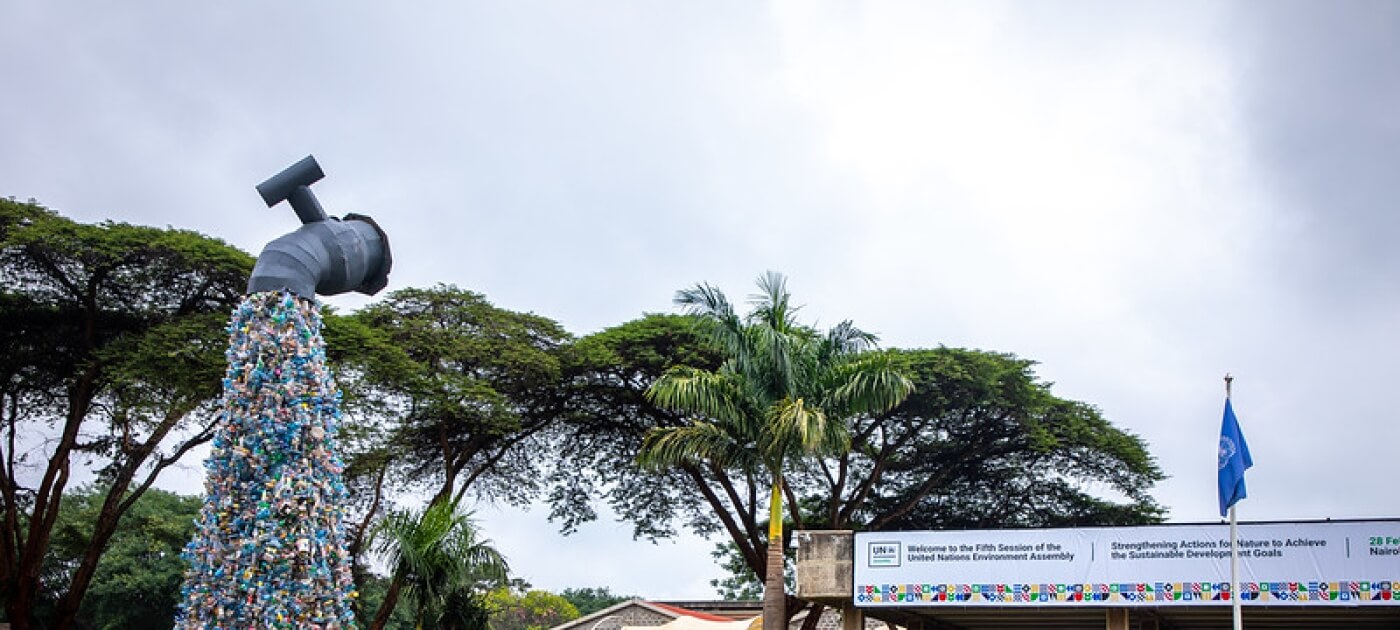NAIROBI: All eyes on Wednesday are on the third and final day at the resumed fifth session of the United Nations Environment Assembly taking place at the UN Environment Programme (UNEP) headquarters in this Kenyan city with possible establishment of an Intergovernmental Negotiating Committee to kick-start work towards a global and legally binding agreement to address plastic pollution.
A day earlier, the Assembly met in contact groups for most of the day and succeeded on several key fronts after complex discussions that lasted till midnight.
Delegates agreed on a game-changing resolution on a Science-Policy Panel to contribute further to the sound management of chemicals and waste, and to prevent pollution.
Meeting in the Committee of the Whole (COW) after a long day of negotiating text, delegates managed to approve 11 resolutions and one decision, as part of efforts to enhance UNEP’s voice on the global stage.
During closing plenary, the COW endorsed resolutions, including on: Environmental aspects of minerals and metals management; enhancing circular economy as a contribution to achieving sustainable consumption and production; sustainable and resilient infrastructure; nature-based solutions on supporting sustainable development; biodiversity and health; and environmental dimension of a sustainable, resilient and inclusive post COVID-19 recovery.
The delegates approved the decision to hold the sixth session of UNEA at UNEP headquarters from February 26 to March 1, 2024.
During the leadership dialogue, Carlos Manuel Rodriguez, CEO and Chairperson, Global Environment Facility (GEF), noted that more money is currently being directed towards harmful activities than towards protecting the life-supporting systems of the planet.
UNEP Executive Director Inger Andersen reminded participants that multilateralism works when “we make it work,” making a rallying call for stronger leadership towards fostering better responses through international coordination and collaboration.
Elizabeth Mrema, Executive Secretary, Convention on Biological Diversity (CBD), underscored the significant role of the post-2020 global biodiversity framework (GBF) in advancing collaboration between existing MEAs in order to foster better and more integrated responses to environmental crises.
Rolph Payet, Executive Secretary, Basel, Rotterdam and Stockholm (BRS) Conventions, highlighted efforts undertaken by the BRS Conventions to explore links between biodiversity, chemicals and waste, and climate change.
One of the most newsworthy aspects of the Assembly will be the deliberations by Member States on the possible establishment of an Intergovernmental Negotiating Committee to kick-start work towards a global and legally binding agreement to address plastic pollution.
Given the scale and challenge of the global plastic pollution crisis, the discussions between Member States, as well as with the private sector, civil society and other participants, could represent the most important development on the global environmental agenda since the Paris Agreement on climate change in 2015.
The Assembly will consider other critical issues, including ecosystem-based approaches and biodiversity, green recovery and circular economy, and chemical waste and nitrogen management.
A statement by the UNEP said an international resolution to end plastic pollution is expected to be gaveled during the closing plenary of the Assembly that is attended by more than 3,400 in-person and 1,500 online participants from 175 UN Member States, including 79 ministers and 17 high-level officials.
UNEP’s Executive Director Inger Andersen outlined what to expect at UNEA-5.2, including progress on halting plastic pollution, stopping harmful chemicals in agriculture and deploying nature to find sustainable development solutions.







